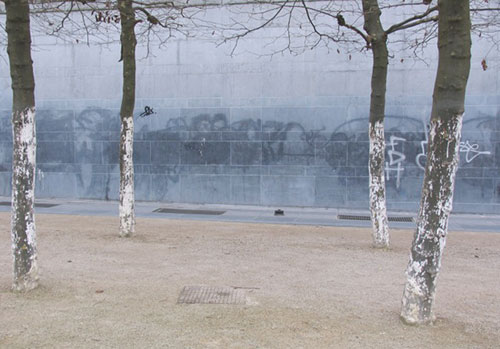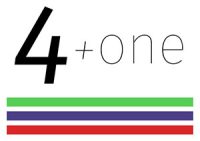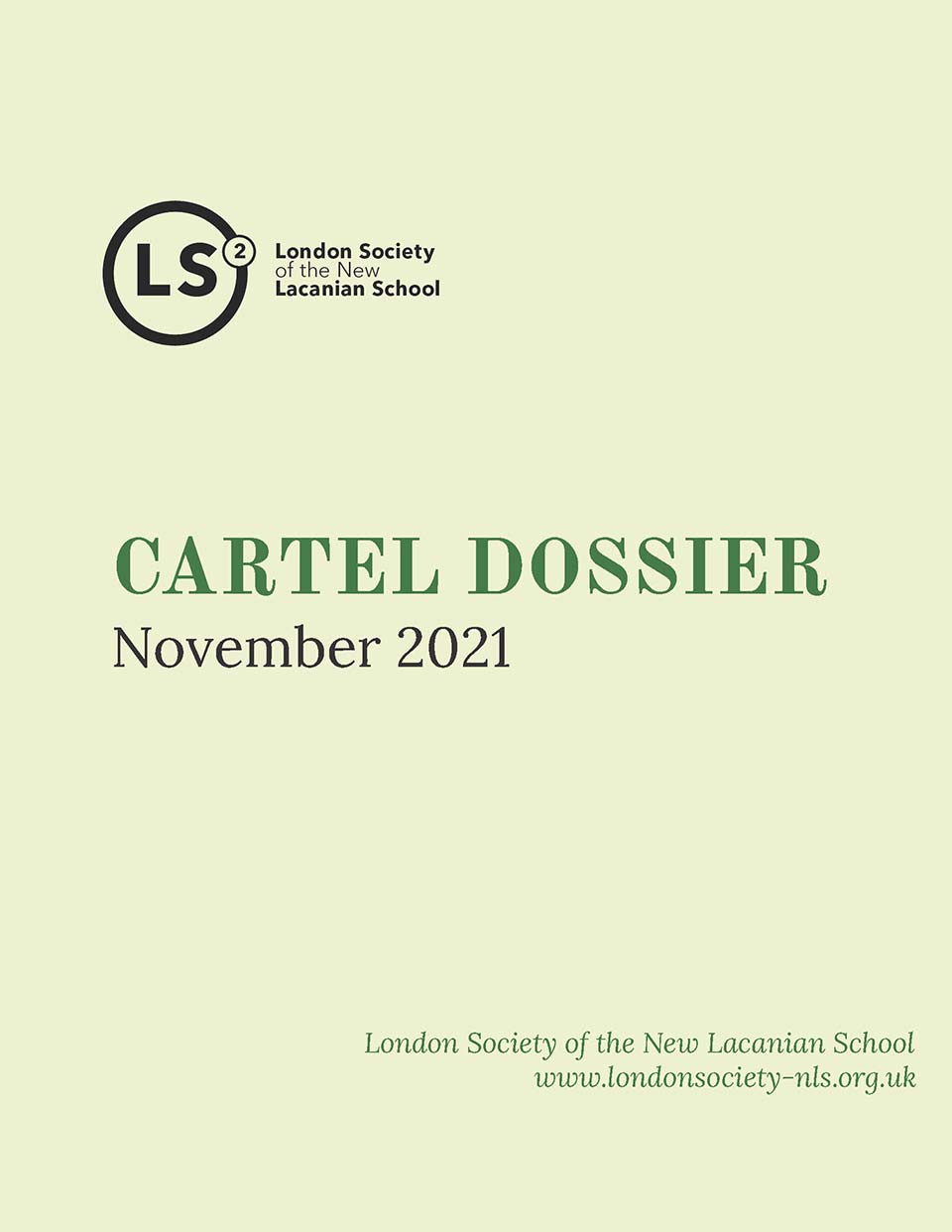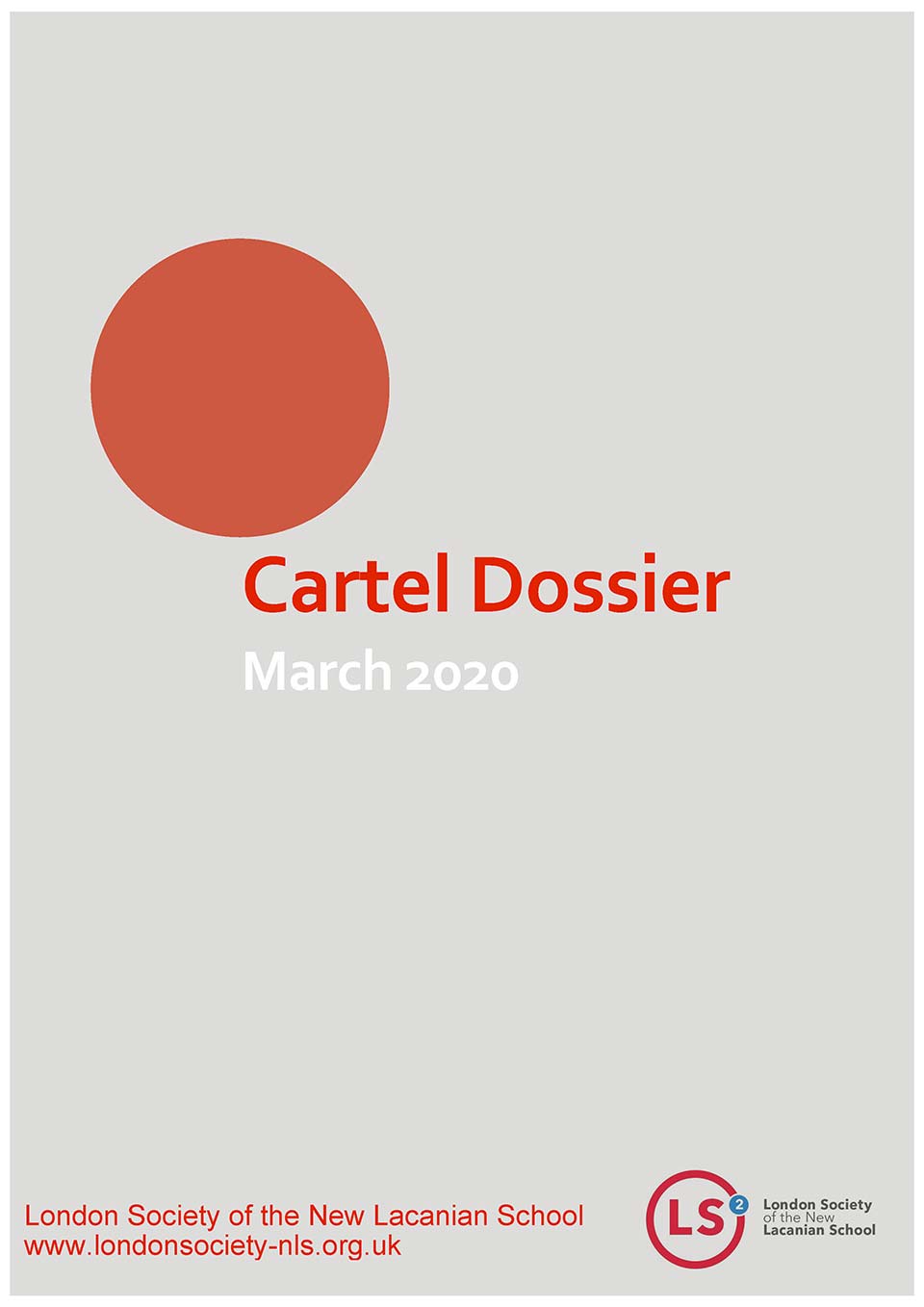One of the two "lungs of the School
“One does not enter the school to rest, but to work there and work more: The School is ‘the organism where a work must be accomplished…The teaching of psychoanalysis can only be transmitted from one subject to another by way of a transference of work”.
Jacques Lacan,
Founding Act

Introduction
Inspired by Bion’s method of the ‘group without a leader’, Lacan created the ‘work group’ that he named, cartel. The cartel first appears in 1964 in the ‘Founding Act’ of the École Freudienne de Paris (EFP) and is suggested as an original mode of working for psychoanalysts and those who want to study psychoanalysis. During that time, the question for Lacan was how to get everyone to work without a master or hierarchy and as such the cartel is conceived of as a small work group in which everybody works together and at the same level around a project centred on ‘psychoanalysis’. The “dismantling of the massiveness of the leader” is one of the principles of the cartel and this is achieved through the installation of the ‘plus-One’, a function occupied by an individual for the duration of the cartel, in a role which rotates thus preventing an individual from identifying or being identified with that function.
The plus-One is chosen by the cartelisands and is “responsible for the selection, the discussion and the outcome to be accorded to the work of each” (Lacan, “Founding Act”). His or her work is to intervene at different levels to facilitate a useful group dynamic. This can be done either through interpretation or theoretical intervention. We could say that the plus-One feminises the cartel by allowing the transition from the masculine logic of the all (i.e. the leader, “at least one”) to the feminine logic of the not-all, de-completing the collective by adding him- or herself to the group as plus-One while supporting the principle of “sustained elaboration”.
In its relationship to the school, the cartel is defined as being one of its “organs”… “something that makes it lively, or… moribund if the organ is sick”. The work conducted in the cartel takes the form of an elaboration sustained by each member, which is submitted to the attention and criticism of peers in a small group. It is work that can lead to a production and to transmission, as the plus-One supports the outcome of the work.
Peggy Papada
The cartel has several organising principles
Four people choose each other to work
Lacan indicated that the cartel is composed of a minimum of three, maximum of five and four people being the “right measure”. The frequency of the meetings is decided by the cartelisands.
Plus-One
The plus-one is chosen by the cartelisands.
The theme of work
Each cartelisand chooses a specific theme of work. This may be the reading of a seminar, the elaboration of a concept or of a case, the connection between psychoanalysis and other fields, etc. The cartel derives its title from a common theme that is added to each person’s individual theme.
Each person’s own product
The work of the cartel does not lead to a collective production of knowledge. Rather, it is a matter for each person, according to where they are in relation to psychoanalysis, to draw out what it had been possible to change in their relation to analytic knowledge.
Permutation
A cartel should not last longer than one or two years. Its necessary conclusion makes it possible to avoid the inertia noticeable in working groups, which become eternal and hinder the appearance of a new knowledge for the subject.
Forming a cartel
To form a cartel, please visit complete the form, following the button below.

“4+one”, the NLS Cartels’ Newsletter is a recent invention and a tool of the School for the dissemination of the ongoing work done in cartels by their members.
Cartel members who wish to send a paper should send it to the NLS Cartel Delegate, Marina Frangiadaki, [email protected]
Cartel Commission: Linda Clarke, Mercedes Rouault, Markus Zöchmesiter
Papers should be short (up to 3,500 characters maximum) and punchy, written either in English or in French.
For more information and further submission specifications, click here.
Texts on Cartels
“The Founding Act”
21 June 1964 Jacques Lacan (extract)
Jacques Lacan presents the principles of the cartel for the first time.
“Those who enter this School will undertake to fulfil a task that is subject to both internal and external supervision. In exchange they are assured that nothing will be spared in order that anything valuable they do gets the attention it deserves and in the appropriate place. To carry out this work we shall adopt the principle of sustained elaboration in small groups.
Each group (we have a name to designate them) will be composed of at least three people, five at most, four is the right balance.
PLUS ONE responsible for the selection, the discussion and the outcome to be accorded to the work of each. After a certain period of functioning the elements of the group will find themselves invited to permutate into another group.
The position of responsibility will not constitute a hierarchy for which service rendered might be capitalized into access to a higher grade, and no one will have to regard himself as demoted for entering into the rank of work at the base.
For the reason that every personal endeavour will place its author under conditions of critique and supervision to which all work undertaken will be submitted in the School.”
“D’écolage“
11 March 1980, Jacques Lacan
This is a short extract from a text written by Lacan on the dissolution of the École Freudienne de Paris and the founding of the École de la Cause Freudienne. In it he reaffirms the cartel as the primary mechanism for conducting work in the School and makes some further procedural clarifications:
” […] with them, without delay, I inaugurate the Cause Freudienne and, on their behalf, restore the fundamental device taken from the foundation of the School, namely the cartel, the formalisation of which, having been tested, I refine.
Firstly, four people choose each other to pursue a work which must have its product. I specify: a product proper to each one and not collective.
Secondly, the conjunction of four is accomplished around a plus-one who, while he is anyone, must be someone. It is his responsibility to watch over the internal effects of the enterprise, and to provoke its elaboration.
Thirdly, to prevent the glue effect [l’effet de colle], there must be a permutation at the end, set at one year, maximum two.
Fourthly, no progress is to be expected, other than by periodically bringing the results as well as the crises of the work to light.
Fifthly, a random draw will ensure the regular turnover of established points of reference in order to vectorise the whole.”
Texts
- Five Variations on the Theme of "Provoked Elaboration", Jacques Allan Miller (Paris, December 1986)
- Provoking the crisis, Gil Caroz (ECF, May 2018)
- One plus One plus One plus One and one Plus-One, Laurent Dupont (ECF, May 2018)
- The School Shaped [Travaillée] by the Cartel, Caroline Leduc (ECF, May 2018)
- Presentation on cartels by the current NLS cartel delegate, Frank Rollier (London, February 2017)
- "About Cartels", Presentation at the SLP Congress by Dominique Holvoet (Milan, May 2013)



